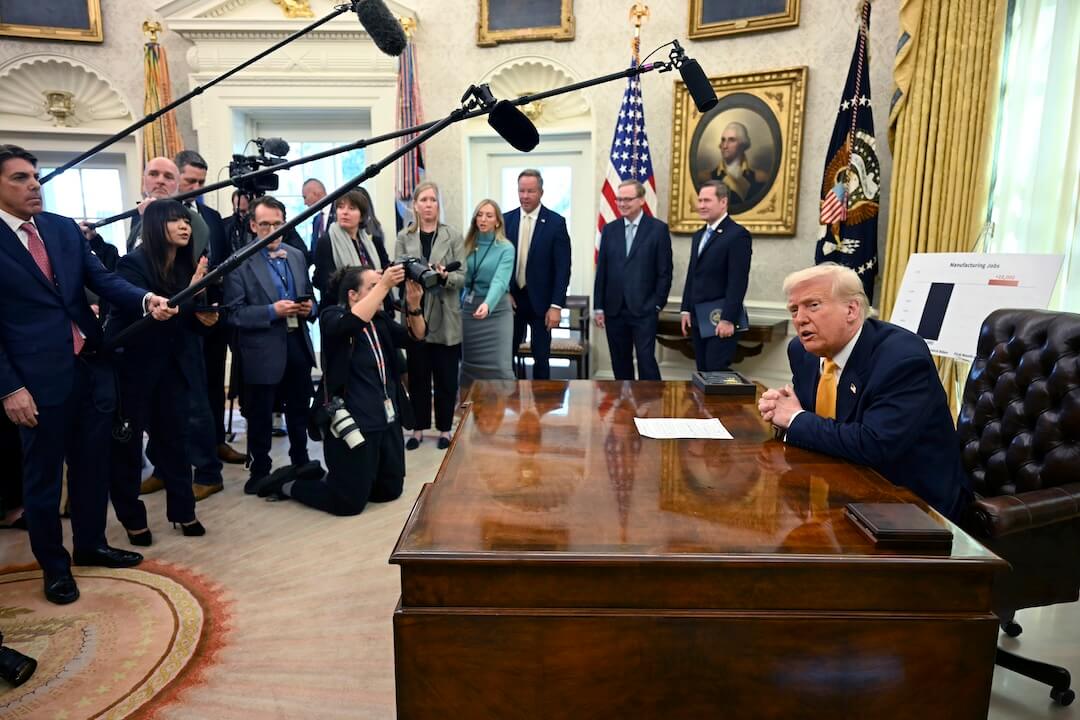There’s a rematch brewing this election cycle. Maverick Fox News has chosen to stick with its own way of calling winners. That could put it at odds again with competitors CNN, ABC, CBS and NBC, members of a shared National Election Pool, who rely on a different methodology.
The collision course played out memorably in 2020’s presidential race in Arizona. Fox called the state for President Joe Biden at 11:20 election night with just 73% of the vote counted. The Associated Press, whose massive vote counting and projection operation forms part of Fox’s model, followed three hours later.
CNN and other pool participants, on the other hand, ended up waiting nine days before finally awarding the state to Biden.
All hell broke loose over Fox’s call. Then-President Donald Trump’s campaign protested angrily that the network was wrong or, at the very least, premature.
Fox never backed off, never restored Arizona to the undecided category.
While several members of the network’s political news team subsequently departed, contractor Arnon Mishkin, the key leader on decision calls, is back in 2022, his methodology the same with minor tweaks.
Mishkin explained in a Tuesday podcast with Martha MacCallum that he and Fox (and the AP) decided to split from the consortium after the 2016 election because they thought it relied too heavily on exit polling of voters as they came out after casting their ballots.
“We thought, number one, they weren’t investing sufficiently in covering early voters and mail in voters,” Mishkin said. “And number two, because there was some evidence that the results were skewed.” (Trump’s margins over Hillary Clinton were badly underestimated).
MacCallum herself, who will again be co-anchoring Fox’s coverage, told the Arizona Republic last week, “There was controversy over the Arizona call in 2020 to be sure … but the call was correct. I think now we are better equipped to bring the viewers in to show them how and why the call is being made.”
Besides being more transparent, might Mishkin and Fox also be more cautious this time out? They are not saying so, but I wouldn’t be surprised. After the fact in 2020, some, including the Washington Post’s Philip Bump, made the case that while Arizona did go for Biden, the margin was much less than Fox seemed to be assuming when it made the call on election night. If so, Fox was right in one sense but wrong in another.
John King of CNN discussed the issue with Kara Swisher on her podcast Monday, repeatedly using the term “conservative” to describe his network’s approach to calling results. He said that he could see on election night 2020 how Fox reached its conclusion, but that he agreed with others on the CNN decision team that “we don’t need to do this.”
As counting mail ballots from metropolitan Phoenix dragged out over more than a week, King continued, “You could see where the progression was headed.” And while that made for a great story, “what’s the point of our trying to write the last chapter (in advance).”
This year, several things will be different and several the same. First, there may be no disparities – or no important ones – between the timing of Fox/AP calls and those of the other networks.
Midterms will seem for many viewers to be lower stakes than the drama of the Biden-Trump presidential race. However, the pressure to make an accurate call as quickly as possible on which party will control the Senate (assuming the House goes to Republicans) is quite similar.
The heat has been further ratcheted up by Trump and like-minded Republicans who are claiming in advance that results in important swing states will be rigged against them.
Plus, the same disparities persist between states like Florida, which count their returns in a matter of hours, and others like Pennsylvania, whose laborious system for qualifying and counting mail-in votes is almost certain to take weeks.
An irony of the 2020 Arizona faceoff was that right-leaning Fox News was first – and adamantly so – in declaring that Trump had lost, while the mainstream networks, high on the former president’s enemies list, held back.
There is no particular reason to think such a scenario will play out again – but it could.







